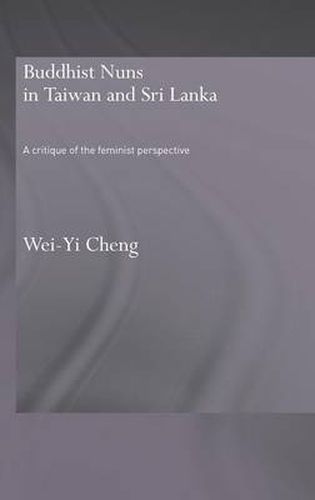Readings Newsletter
Become a Readings Member to make your shopping experience even easier.
Sign in or sign up for free!
You’re not far away from qualifying for FREE standard shipping within Australia
You’ve qualified for FREE standard shipping within Australia
The cart is loading…






Taking a comparative approach, this fieldwork-based study explores the lives and thoughts of Buddhist nuns in present-day Taiwan and Sri Lanka. The author examines the postcolonial background and its influence on the modern situation, as well as surveying the main historical, economic, and social factors which influence the position of nuns in society.
Based on original research, including interviews with nuns in both countries, the book examines their perspectives on controversial issues and in particular those concerning the status of women in Buddhism. Concerns discussed include allegedly misogynist teachings relating to women’s inferior karma, that they cannot become Buddhas, and that nuns have to follow additional rules that monks do not.
Bridging the gap between feminist theory and the reality of women in religion, the book makes a distinct contribution to the study of women in Buddhism by focusing on nuns from both of the main wings of Buddhism (Theravada and Mahayana) as well as furthering feminist studies of Buddhism and religion in general.
$9.00 standard shipping within Australia
FREE standard shipping within Australia for orders over $100.00
Express & International shipping calculated at checkout
Taking a comparative approach, this fieldwork-based study explores the lives and thoughts of Buddhist nuns in present-day Taiwan and Sri Lanka. The author examines the postcolonial background and its influence on the modern situation, as well as surveying the main historical, economic, and social factors which influence the position of nuns in society.
Based on original research, including interviews with nuns in both countries, the book examines their perspectives on controversial issues and in particular those concerning the status of women in Buddhism. Concerns discussed include allegedly misogynist teachings relating to women’s inferior karma, that they cannot become Buddhas, and that nuns have to follow additional rules that monks do not.
Bridging the gap between feminist theory and the reality of women in religion, the book makes a distinct contribution to the study of women in Buddhism by focusing on nuns from both of the main wings of Buddhism (Theravada and Mahayana) as well as furthering feminist studies of Buddhism and religion in general.